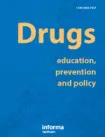| Titre : | Confronting the challenges of conducting a CBA of cannabis policies (2013) |
| Auteurs : | M. SHANAHAN ; A. RITTER |
| Type de document : | Article : Périodique |
| Dans : | Drugs: Education, Prevention and Policy (Vol.20, n°3, June 2013) |
| Article en page(s) : | 175-183 |
| Langues: | Anglais |
| Discipline : | SAN (Santé publique / Public health) |
| Mots-clés : |
Thésaurus mots-clés ECONOMIE ; THEORIE ; COUT ; BENEFICE ; CANNABIS ; POLITIQUE ; LEGALISATION ; MESURES QUANTITATIVES ; BIEN-ETRE |
| Résumé : | Cost-benefit analysis (CBA), with its foundation in social welfare theory, is widely used to assess programs in a range of policy areas. Many CBAs are conducted by simply quantifying the implementation costs and valuing one or more of the potential outcomes. Legalization of cannabis in any jurisdiction will potentially have a wide range of benefits and harms, some of which may be easily identified and valued while others will be more demanding. If significant harms and benefits of legalization of cannabis are excluded, the results of the CBA may not provide a true valuation of policy and produce misleading recommendations. This commentary outlines some of the challenges encountered while undertaking a CBA of two cannabis policy options. Specific attention is given to the importance of the identification and valuation of the harms and benefits of the policy options. The potential role of the alternate methods of valuing outcomes, such as contingent valuation and discrete choice experiments are considered. |
| Domaine : | Drogues illicites / Illicit drugs |
| Affiliation : | National Drug and Alcohol Research Centre, University of New South Wales, Sydney, NSW, Australia |
| Cote : | Abonnement |
| Lien : | http://dx.doi.org/10.3109/09687637.2013.763906 |
 Accueil
Accueil



